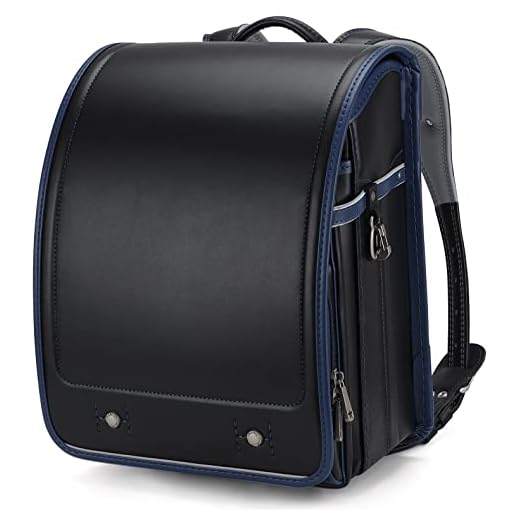



To communicate the term ‘baggage’ in Japanese, use the word 荷物 (nimotsu). This term encompasses all types of personal belongings, including suitcases and backpacks.
When referring to checked luggage, you can say 預け荷物 (azuke nimotsu). If you’re discussing carry-on items, the phrase 機内持ち込み荷物 (kinai mochikomi nimotsu) is appropriate.
In context, if you need assistance at an airport, it may be helpful to say, “私の荷物はどこですか?” (Watashi no nimotsu wa doko desu ka?), which translates to “Where is my baggage?” Understanding these terms will enhance your interactions and ease your travels in Japan.
Vocabulary for Your Baggage in Japanese
For travelers in Japan, understanding the local terms for belongings is crucial. The word used to refer to bags is 荷物 (nimotsu). This term covers various types of items, from suitcases to backpacks. When asking for assistance, you might say “この荷物を持っていただけますか?” (Kono nimotsu o motte itadakemasu ka?), meaning “Could you help me with this bag?”
Important Phrases
Knowing the right phrases can enhance your experience. If you need clarification about the status of your bags, use 荷物の場所はどこですか? (Nimotsu no basho wa doko desu ka?), which translates to “Where is my bag located?” For checking in, simply state チェックインのための荷物です。 (Chekku in no tame no nimotsu desu), meaning “This is my baggage for check-in.”
Helpful Tips
When selecting items to transport, consider investing in a high-quality bag, like the best ultramarathon backpack, which offers comfort and durability. Also, be mindful of the weight limits commonly imposed by airlines.
Common Phrases for Referring to Luggage
To effectively communicate about baggage in Japan, it’s crucial to know specific expressions. Use the term 荷物 (nimotsu) for “luggage” or “baggage.” For inquiries regarding the status of bags, phrase it as: 荷物はどこですか? (Nimotsu wa doko desu ka?), meaning “Where is the luggage?”
Describing Baggage
When discussing weight, use 重さ (omosa) for “weight.” An example is: この荷物はどのくらい重いですか? (Kono nimotsu wa dono kurai omoi desu ka?), which translates to “How heavy is this baggage?”
At the Airport
At check-in, request help with: 手伝ってもらえますか? (Tetsudatte moraemasu ka?), meaning “Can you assist me?” If your items are lost, inquire: 荷物が見つかりません (Nimotsu ga mitsukarimasen) – “My baggage is lost.”
Understanding Bag Types and Their Japanese Names
Familiarize yourself with common types of bags and their corresponding Japanese terms. This knowledge will aid in effective communication while traveling in Japan.
Backpack
The term for a backpack is リュック (ryukku). These are popular for travelers seeking hands-free convenience and comfort.
Suitcase
Suitcase is translated as スーツケース (sūtsukēsu). This term encompasses various styles, including hard-shell and soft-shell varieties.
Another term, ボストンバッグ (bosuton baggu), refers to a duffel bag or a Boston bag, which is great for short trips or gym visits. On the other hand, トートバッグ (tōto baggu) describes a tote bag, often used for shopping or daily outings.
Handbag
For a handbag, Japanese use ハンドバッグ (handobaggu). This is common among women for carrying personal items.
Recognizing these bag types and their names enhances interactions and ensures seamless travel experiences across Japan.
Asking for Help with Your Luggage in Japanese
To request assistance regarding baggage, use “すみません、手伝っていただけますか?” (Sumimasen, tetsudatte itadakemasu ka?), which means “Excuse me, can you help me?” This phrase is polite and effective in conveying your needs.
If you need a specific type of help, such as finding your way, phrase it as follows: “この荷物はどこに持って行けばいいですか?” (Kono nimotsu wa doko ni motte ikeba ii desu ka?), meaning “Where should I take this bag?” Additionally, if you require help lifting or carrying, ask “この荷物を持ち上げてもらえますか?” (Kono nimotsu o mochi agete moraemasu ka?), translating to “Can you lift this bag for me?”
When addressing someone in a hurry, using “急いでいるので、手伝ってもらえますか?” (Isoide iru node, tetsudatte moraemasu ka?) translates to “I’m in a hurry, can you help me?” This captures urgency while still being respectful.
For finding lost belongings, inquire with “荷物が見つかりません、手伝ってもらえますか?” (Nimotsu ga mitsukarimasen, tetsudatte moraemasu ka?), meaning “I can’t find my bag, can you help me?”
Furthermore, if you want directions to a specific place with a suitcase, you can ask, “このスーツケースを持って、どこに行けばいいですか?” (Kono suutsukeesu o motte, doko ni ikeba ii desu ka?), which means “Where should I go with this suitcase?”
Always remember to say “ありがとうございます” (Arigatou gozaimasu) to express gratitude after receiving assistance, as politeness is highly valued in Japanese culture.
Expressing Concerns About Lost or Damaged Bags
Directly address issues regarding missing or damaged bags by using specific phrases. For instance, if a bag is lost, a suitable expression is “荷物が見つからないのですが” (Nimotsu ga mitsukaranai no desu ga), which translates to “My bag cannot be found.” If there is damage, use “荷物が壊れています” (Nimotsu ga kowareteimasu) meaning “My bag is broken.”
- If you need assistance locating your item, ask: “荷物を探してもらえますか?” (Nimotsu o sagashite moraemasu ka?) – “Can you help me find my bag?”
- When filing a report, state: “紛失した荷物の報告をしたいです” (Funshitsu shita nimotsu no houkoku o shitai desu) – “I want to report a lost bag.”
- For inquiries about compensation, use: “損害賠償について教えてください” (Songai baishou ni tsuite oshiete kudasai) – “Please let me know about compensation for damages.”
Keep important information close such as your travel insurance policy and contact details for the airline. Phrases regarding compensation and assistance can make communication clearer.
In case of urgent needs, you might consider learning additional key phrases. For an unrelated topic, you can find more information on a different subject here: how to bury wire for dog fence.







